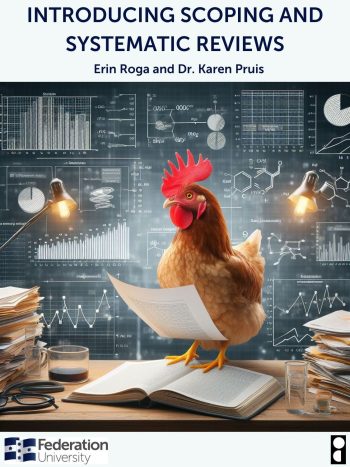
PRISMA for Scoping Reviews - https://www.prisma-statement.org/scoping
Munn, Z., Peters, M.D.J., Stern, C. et al. Systematic review or scoping review? Guidance for authors when choosing between a systematic or scoping review approach. BMC Med Res Methodol 18, 143 (2018). https://doi.org/10.1186/s12874-018-0611-x
Pham MT, Rajić A, Greig JD, Sargeant JM, Papadopoulos A, McEwen SA. A scoping review of scoping reviews: advancing the approach and enhancing the consistency. Res Synth Methods. 2014 Dec;5(4):371-85. doi: 10.1002/jrsm.1123. Epub 2014 Jul 24. PMID: 26052958; PMCID: PMC4491356.
NVivo is a software application used for storing, organising, and analysing qualitative and mixed methods data. Such data as gained from case studies, interviews, observations, and surveys with open-ended questions.
NVivo Access
Contact ServiceDesk@canberra.edu.au for assistance with accessing NVivo.
Covidence is an online Systematic Review software. It can import citations from reference managers like EndNote, facilitate the screening of abstracts and full-text, populate risk of bias tables, assist with data extraction, and export to all common formats.
After clicking the link “Create new review” you will have the option to use your personal account license or select the University of Canberra’s account.
Reviews created under the institutional license will be visible to the administrators of the University of Canberra Libraries Covidence account. Your personal account review(s) will only be seen by you.
NB: Our annual subscription fee for Covidence is based on the number of new reviews, so please do not create Test/Practice reviews. Instead, refer to the Knowledge Base and/or generate a demo review; both are located near the sign in at the top of the page.
Covidence provides access to self paced training videos accessible via this link.
For comprehensive information on how to use Covidence and for technical support please see the Covidence Academy and Covidence Knowledge Base .
Rayyan is a online free alternative to Covidence.
Rayyan is free (Open Access) software. Go to https://rayyan.qcri.org/welcome to sign up.
For information on how to use Rayyan see the video and McGill University Rayyan Guide
SUMARI is JBI's software for Systematic Reviews. It is designed for use in fields such as health, social sciences and humanities. SUMARI supports 10 review types including qualitative reviews, mixed methods reviews, scoping reviews and many more. SUMARI allows you to easily work through the process, from protocol development, team management, study selection, critical appraisal, data extraction, data synthesis and writing your Systematic Review report.
Short videos on how to use SUMARi are available here.
 Introducing Scoping and Systematic Reviews
by
Erin Roga, Karen Puis
Introducing Scoping and Systematic Reviews
by
Erin Roga, Karen Puis
